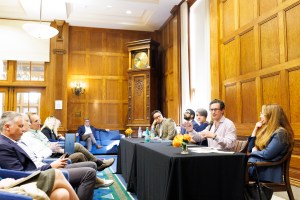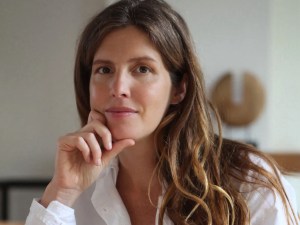How to move out and stay green at same time
With the end of the academic year fast approaching, the temptation to purge all obsolete office and school materials is stronger than ever. But to maintain Harvard’s impressive 50 percent recycling rate, Harvard’s University Operations Services (UOS) wishes to remind the community to continue recycling all materials whenever possible. All old documents, books, folders, magazines, catalogs, cardboard, and boxes are recyclable; and after receptions, meetings, and parties, bottles, cans, cups, and containers can be recycled.
Additionally, rather than throwing out reusable items, including office supplies, clothing, furniture, computers, and nonperishable food, they can be donated instead. Below is a short list of innovative “freecycle” happenings, reuse programs, and stuff-giveaways around campus. USO urges the Harvard community to use this list as a guide or as inspiration to create a reuse system in different departments.
• The Harvard Surplus Distribution Center (located at 175 N. Harvard St. in Allston) annually prevents tons of office furniture from entering landfills. The center gives away furniture every Thursday from 11 a.m. to 2 p.m. on a first-come, first-served basis
• End-of-the-year clothing swaps in residence halls have become a popular and resourceful social event
• This year, Harvard’s contingent of Schools and organizations holding their own office supply swaps grew. In 2007-08, the Law School and the Radcliffe Institute hosted such events
• Harvard Habitat for Humanity’s annual stuff sale runs over four weekends starting the Saturday before Labor Day. Last year the event raised more than $92,000 to support charitable activities
• On Earth Day (April 22), Harvard Medical School (HMS) held its first official “Freecycle Day” in the Courtyard Café of the Warren Alpert Building. The organizers estimate that between 60 and 75 percent of the free items that had been dropped off, including folders, mugs, paper clips, and pens, were taken away. All remaining items were recycled or donated to Extras for Creative Learning, a nonprofit organization that offers recycled materials to teachers, parents, and students to stimulate creative learning in Boston-area schools
To find out more about recycling on campus, or to secure bins, contact Harvard supervisor of waste management Rob Gogan at (617) 495-3042, or e-mail him at rob_gogan@harvard.edu. For more information on freecycling and other sustainability programs at HMS, contact HMSgreentip@greencampus.harvard.edu.





